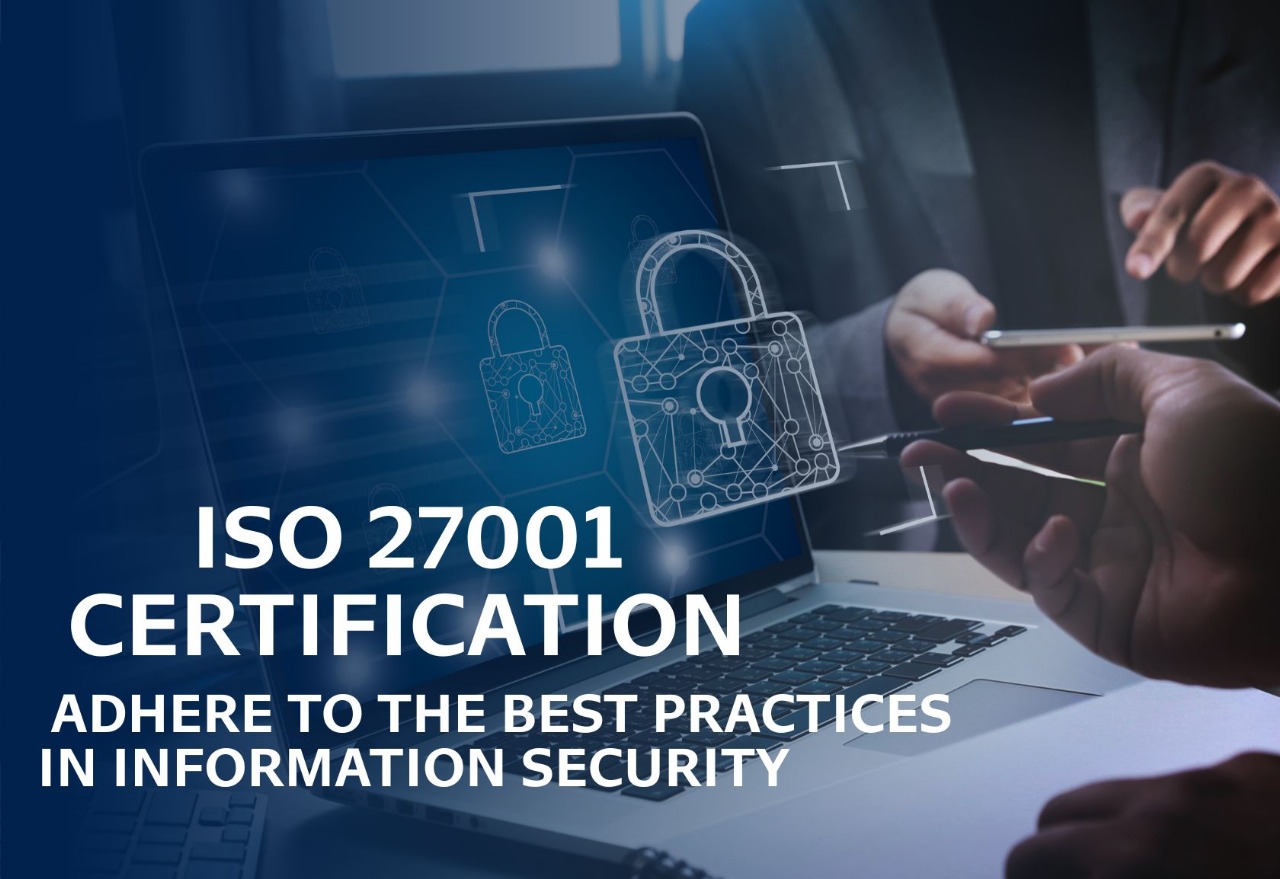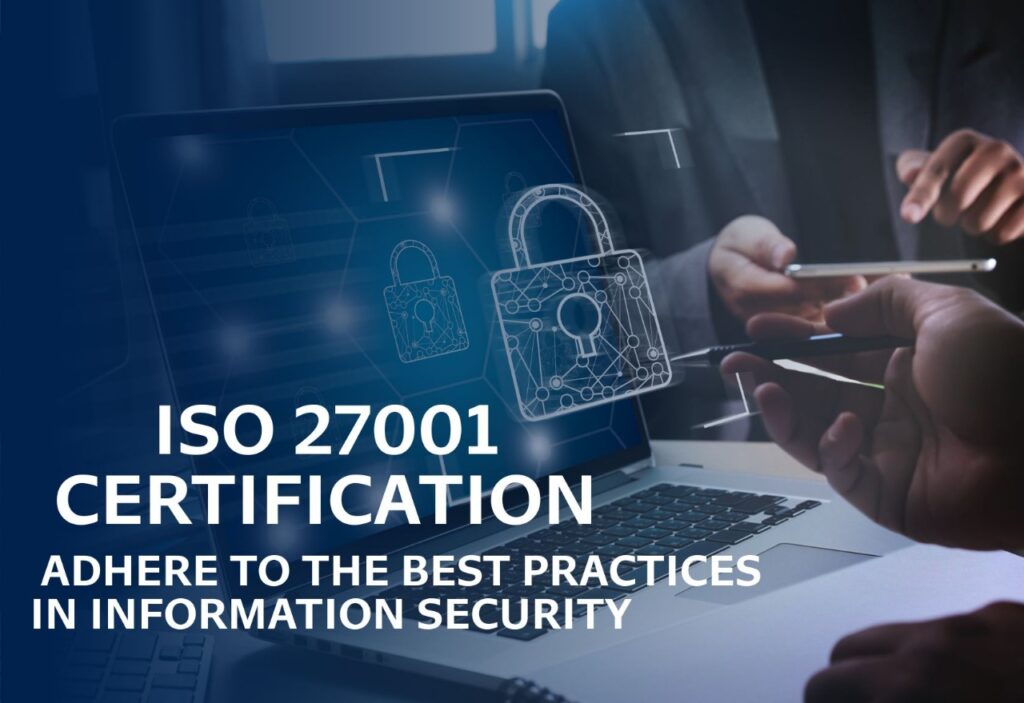We all know that IT security, cybersecurity, and privacy protection are important for the companies to keep their standards safe. ISO 27001 certification is the best-known standard for information security management system (ISMS). This will enable organizations to manage their security assets in the first place and helps to protect the financial information and other data entrusted by third parties.

Need for ISO 27001 Certification :
Certifications are essential to protect consumers, ensure quality, comply with laws, promote sustainability, and build trust in products. Different industries require different certifications based on their unique safety and quality requirements.
Product certifications play a crucial role in ensuring quality, safety, and compliance with regulatory standards. Here’s why different certifications are needed:
1. Ensuring Consumer Safety-
Certifications verify that products meet safety standards, reducing risks like electrical hazards, food contamination, and structural failures.
Example: UL Certification ensures electrical appliances don’t cause fires or shocks.
2. Maintaining Product Quality-
Certification ensures consistent quality in manufacturing, preventing defects and substandard products.
Example: ISO 9001 certification guarantees a high level of quality management in production.
3. Legal Compliance & Market Access-
Many countries mandate product certifications before allowing them to be sold.
Example: CE Marking is required for products sold in the European Economic Area.
4. Protecting Consumer Rights-
Certifications prevent false advertising and misleading claims about product quality, ensuring fair trade.
Different types of Certification for ensuring quality of product and services –
Certification marks are issued for different products based on industry standards, safety, and quality requirements. Below are some well-known certification marks categorized by product type:
1.Food & Agricultural Products
· FSSAI (Food Safety and Standards Authority of India) – Ensures food safety and quality in India.
2. Industrial & Consumer Goods
· ISO Certification (International) – Various quality and safety standards for products and services.
· ISI Mark (India) – Ensures industrial and consumer product quality under the Bureau of Indian Standards (BIS).
3. Construction Materials & Equipment
· BIS Certification (India) – Mandatory for cement, steel, and construction materials.
ISO Certification-
ISO Certification is an internationally recognized credential that validates a business’s fulfillment of requirements relating to quality process standards as defined by the International Standards Organization. It assures stakeholders, customers, and regulatory bodies that the certified organization adheres to a globally accepted set of standards for its processes, products, or services.
Similarly, an ISO mark refers to certification from the International Organization for Standardization (ISO). This certification ensures that a product, service, or system meets international quality, safety, and efficiency standards. Some common ISO certifications include:
· ISO 9001 – Quality Management System (QMS)
· ISO 14001 – Environmental Management System
· ISO 45001 – Occupational Health and Safety
· ISO 27001 – Information Security Management
· ISO 22000 – Food Safety Management
ISO certification is often seen on products, packaging, and company documents to indicate compliance with global standards.
ISO 27001 Certification –
-Demonstrates commitment to managing information securely and safely.
· Outlines requirements for implementing an effective Information Security Management System (ISMS).
· Protects vital assets like employee and client information.
· Can refer to certification of a company’s ISMS or certification of individuals to implement or audit against ISO 27001 requirements.
ISO 27001 Certification: Information Security Management System (ISMS)
ISO 27001 is an international standard for managing information security. It provides a framework for an Information Security Management System (ISMS) to protect sensitive data and reduce security risks.
1. Purpose of ISO 27001
ISO 27001 helps organizations:
· Secure sensitive information from cyber threats, leaks, and breaches.
· Ensure confidentiality, integrity, and availability (CIA) of data.
· Meet legal and regulatory compliance (e.g., GDPR, HIPAA).
· Improve cybersecurity and risk management.
· Build customer and stakeholder trust.
2. Key Components of ISO 27001
· Data Encryption & Protection – Ensures data confidentiality and integrity.
· Incident Response – Defines processes for handling security breaches.
· Regular Audits & Monitoring – Continuous improvement of security measures.
3. Benefits of ISO 27001 Certification
· Protects customer and business data from cyberattacks.
· Reduces the risk of financial losses due to data breaches.
· Enhances compliance with privacy laws and regulations.
· Increases credibility and trust among clients and partners.
· Helps businesses expand into international markets.
4. Industries that Need ISO 27001
· IT & Software Companies
· Banks & Financial Institutions
· E-commerce & Retail
· Cloud Service Providers
5. Steps to Get ISO 27001 Certified
· Gap Analysis – Identify current security weaknesses.
· Develop ISMS – Implement security policies and controls.
· Employee Training – Ensure staff follows security best practices.
· Internal Audit – Test the effectiveness of ISMS.
· External Audit & Certification – A third-party certification body verifies compliance.
When setting up and operating the ISO standards you need to connect with the right ISO certification partner to achieve your goals. ISO Saudi provides you a successful model on the methods of ISO 27001 certification implementation services. We adopt the industry leading standards to implement and maintain ISMS for your organization.
Drop us an email [email protected]
Services Offered :- Riyadh, Dammam, Yanbu, Jeddah, Jubail, Hofuf
